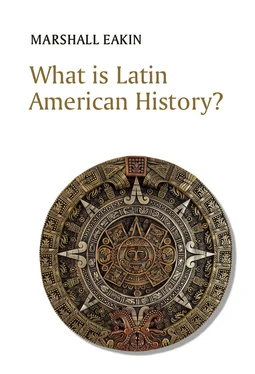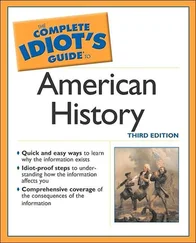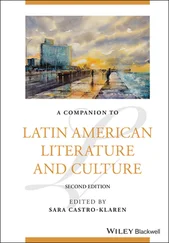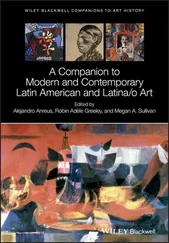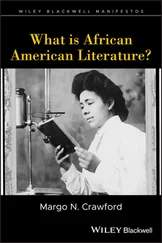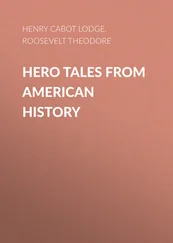Marshall Eakin - What is Latin American History?
Здесь есть возможность читать онлайн «Marshall Eakin - What is Latin American History?» — ознакомительный отрывок электронной книги совершенно бесплатно, а после прочтения отрывка купить полную версию. В некоторых случаях можно слушать аудио, скачать через торрент в формате fb2 и присутствует краткое содержание. Жанр: unrecognised, на английском языке. Описание произведения, (предисловие) а так же отзывы посетителей доступны на портале библиотеки ЛибКат.
- Название:What is Latin American History?
- Автор:
- Жанр:
- Год:неизвестен
- ISBN:нет данных
- Рейтинг книги:4 / 5. Голосов: 1
-
Избранное:Добавить в избранное
- Отзывы:
-
Ваша оценка:
- 80
- 1
- 2
- 3
- 4
- 5
What is Latin American History?: краткое содержание, описание и аннотация
Предлагаем к чтению аннотацию, описание, краткое содержание или предисловие (зависит от того, что написал сам автор книги «What is Latin American History?»). Если вы не нашли необходимую информацию о книге — напишите в комментариях, мы постараемся отыскать её.
What is Latin American History? — читать онлайн ознакомительный отрывок
Ниже представлен текст книги, разбитый по страницам. Система сохранения места последней прочитанной страницы, позволяет с удобством читать онлайн бесплатно книгу «What is Latin American History?», без необходимости каждый раз заново искать на чём Вы остановились. Поставьте закладку, и сможете в любой момент перейти на страницу, на которой закончили чтение.
Интервал:
Закладка:
Marshall C. Eakin
polity
Copyright Page
Copyright © Marshall C. Eakin 2021
The right of Marshall C. Eakin to be identified as Author of this Work has been asserted in accordance with the UK Copyright, Designs and Patents Act 1988.
First published in 2021 by Polity Press
Polity Press
65 Bridge Street
Cambridge CB2 1UR, UK
Polity Press
101 Station Landing
Suite 300
Medford, MA 02155, USA
All rights reserved. Except for the quotation of short passages for the purpose of criticism and review, no part of this publication may be reproduced, stored in a retrieval system or transmitted, in any form or by any means, electronic, mechanical, photocopying, recording or otherwise, without the prior permission of the publisher.
ISBN-13: 978-1-5095-3851-5
ISBN-13: 978-1-5095-3852-2 (pb)
A catalogue record for this book is available from the British Library.
Library of Congress Cataloging-in-Publication Data
Names: Eakin, Marshall C. (Marshall Craig), 1952- author.
Title: What is Latin American history? / Marshall C. Eakin.
Description: Cambridge, UK ; Medford, MA : Polity, 2021. | Series: What is history? | Includes bibliographical references and index. | Summary: “The first student-friendly guide to the sub-field of Latin American history”-- Provided by publisher.
Identifiers: LCCN 2021006121 (print) | LCCN 2021006122 (ebook) | ISBN 9781509538515 | ISBN 9781509538522 (pb) | ISBN 9781509538539 (epub)
Subjects: LCSH: Latin America--Historiography. | Historians--Latin America. | Latin America--History--20th century.
Classification: LCC F1409.7 .E24 2021 (print) | LCC F1409.7 (ebook) | DDC 980.03--dc23
LC record available at https://lccn.loc.gov/2021006121
LC ebook record available at https://lccn.loc.gov/2021006122
by Fakenham Prepress Solutions, Fakenham, Norfolk NR21 8NL
The publisher has used its best endeavours to ensure that the URLs for external websites referred to in this book are correct and active at the time of going to press. However, the publisher has no responsibility for the websites and can make no guarantee that a site will remain live or that the content is or will remain appropriate.
Every effort has been made to trace all copyright holders, but if any have been overlooked the publisher will be pleased to include any necessary credits in any subsequent reprint or edition.
For further information on Polity, visit our website: politybooks.com
Map
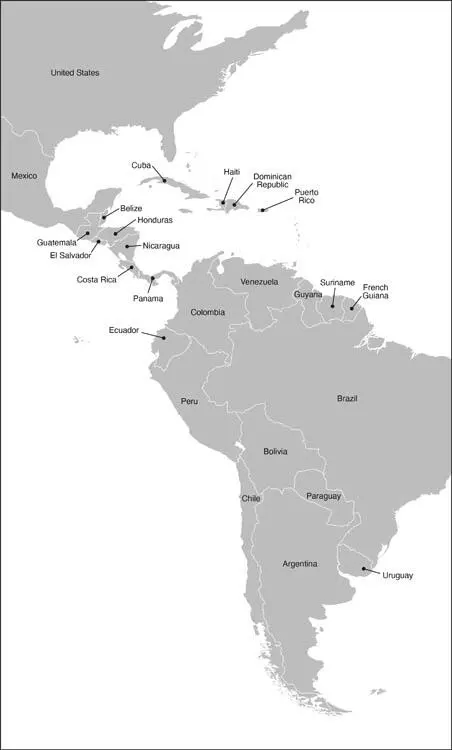
Acknowledgments
I would like to thank Pascal Porcheron and Polity Press for the invitation to write this book. Although I have long reflected on the history of Latin American history, and have even written a bit about the subject, writing this volume has given me the opportunity to take a closer and deeper look at the longue durée of the field. I have been a participant-observer over the past five decades in the shifting historiographical approaches I describe in chapters 3– 6. Revisiting this history has been an enlightening personal as well as professional encounter with Latin American history and historians across decades and centuries.
An abraço to Tom Holloway for his advice and suggestions since the inception of the project. I also very much appreciate the generous and helpful comments of the two anonymous outside readers of the manuscript. Many, many years ago, Teresa Meade (without either of us knowing) gave me the initial push in our work on the Conference on Latin American History’s Teaching Committee. Obrigado , Teresa. After a quarter century, here is the result of our discussions. As always, many thanks to my colleagues in the Department of History at Vanderbilt University, especially Jane Landers, Celso Castilho, Eddie Wright-Rios, and Frank Robinson, our Latin American history junta . The graduate students in my Research Seminar in Latin American History during the fall of 2020 read and discussed an earlier version of the manuscript. Thank you, Claudia Monterroza Rivera, André Ramos Chacón, Ricky Sakamoto-Pugh, and Alex Sanchez.
Finally, my thanks to Pascal and his able crew – Ellen MacDonald-Kramer, Stephanie Homer, Rachel Moore, and Caroline Richmond – who have shepherded the project from inception to completion.
Introduction
Latin American history has become a vibrant and dynamic field of study over the last half-century even as historians of Latin America have found it increasingly difficult to agree on how to define the region they study. As the field has become more and more professionalized and specialized, some of the most influential and innovative work on the region crosses multiple political and cultural boundaries, often stretching thematically and geographically into other areas of the world. The field began to emerge a century ago, largely out of work inspired by national histories written by Latin Americans and of a few historians in the United States and Europe, whose work was often shaped by the power of their own countries in Latin America and the world. Today, in an age of rapid globalization and transnational exchanges, Latin American history is a highly developed field within the historical profession, but it will become more difficult in the coming decades to speak of something we can call Latin America. The end of Latin America as a coherent region and object of study could be the future of Latin American history.
In the United States the professionalization of Latin American history began at the close of the nineteenth century, grew slowly in the first half of the twentieth century, and emerged as a dynamic and substantial professional field in the last decades of the twentieth century. The Conference on Latin American History, the primary professional association of historians of Latin America in the United States, counted more than one thousand members in the first two decades of the twenty-first century. (As a point of comparison, the membership of the American Historical Association in 2020 was about 12,000.) A much smaller but important community of historians emerged simultaneously in Great Britain and Canada, and a very small but excellent group had taken shape in Australia by 2000. Much as in Great Britain, there is a small community of historians of Latin America across Europe, most notably in Spain, Portugal, France, and Germany.
Latin Americans, not surprisingly, have produced the vast majority of historical writing on Latin America. Until the second half of the twentieth century, writers who were rarely professional or university-based historians produced most of this work. With the rise of universities and graduate programs since the Second World War, nearly all the nations of Latin America now generate a steady stream of professional historians with university positions who publish in a vast array of professional journals and with many publishers. Despite a growing trend after 1950 toward a greater awareness of work across national boundaries, overwhelmingly the publications of historians in Latin America focus on the history of their own nation or some part of their nation. In Brazil alone, for example, by 2010 university graduate programs generated more than 1,000 M.A. theses and 300 doctoral dissertations per year, the vast majority on the history of Brazil. In short, there are striking asymmetries in the production of work on the history of Latin America. In the United States, with its enormous and highly developed university doctoral programs, more than 170 in history alone, historians of Latin America make up about 7 percent of the profession and produce around 75 doctoral dissertations annually. In Mexico and Brazil, both with highly developed graduate programs in history, probably above 80 percent of the academic historians work on their native country.
Читать дальшеИнтервал:
Закладка:
Похожие книги на «What is Latin American History?»
Представляем Вашему вниманию похожие книги на «What is Latin American History?» списком для выбора. Мы отобрали схожую по названию и смыслу литературу в надежде предоставить читателям больше вариантов отыскать новые, интересные, ещё непрочитанные произведения.
Обсуждение, отзывы о книге «What is Latin American History?» и просто собственные мнения читателей. Оставьте ваши комментарии, напишите, что Вы думаете о произведении, его смысле или главных героях. Укажите что конкретно понравилось, а что нет, и почему Вы так считаете.
